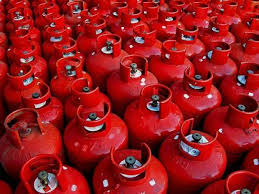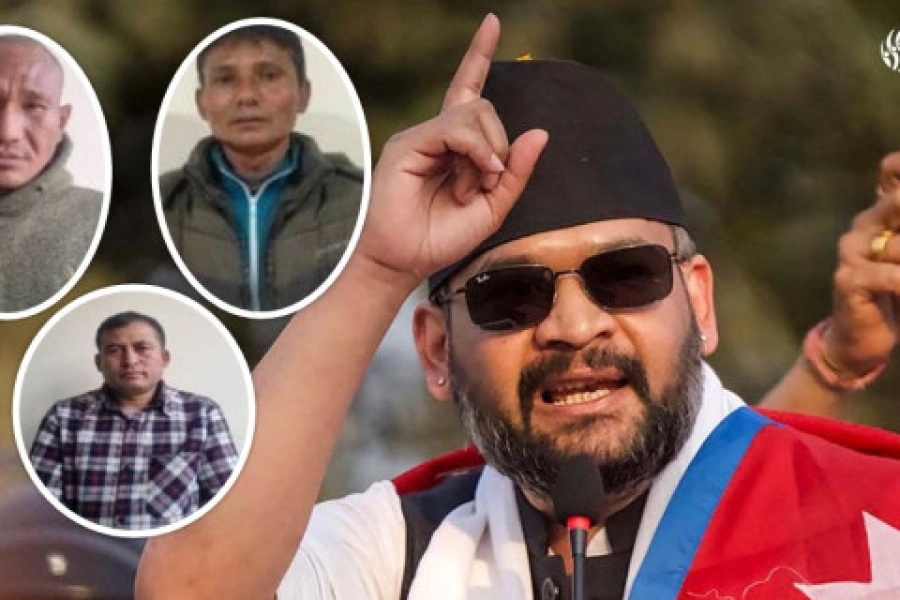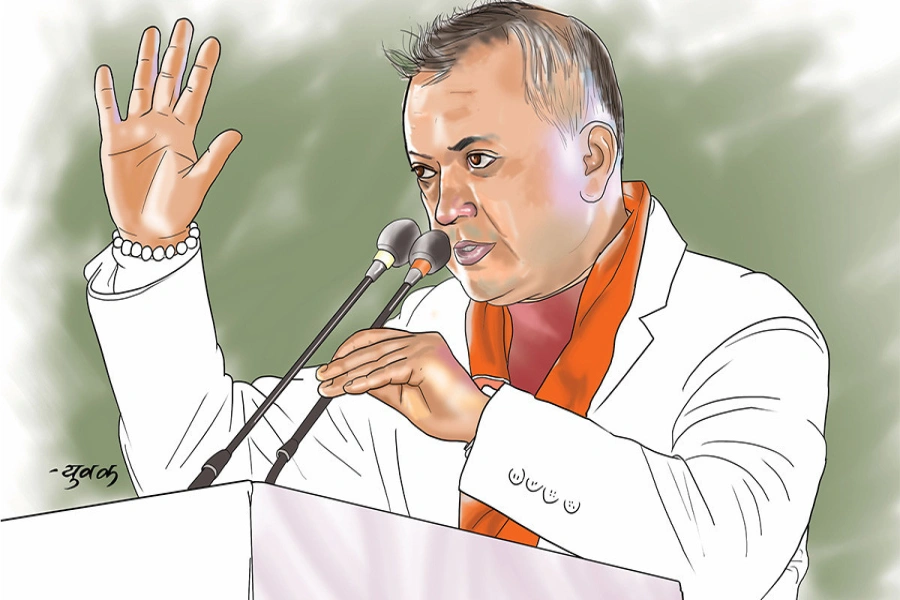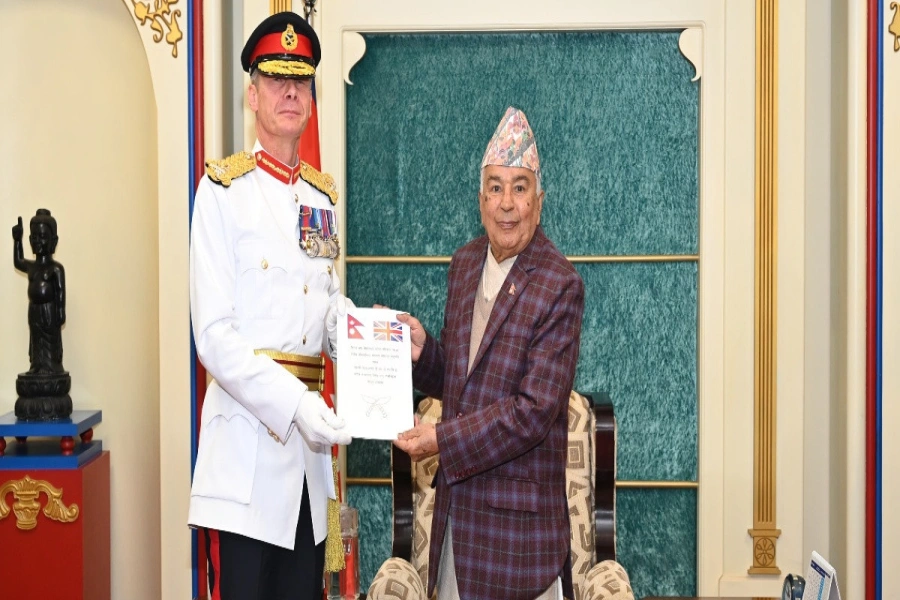As events continue to unfold in Nepal, particularly concerning the fake Bhutanese refugee scandal, there is a growing public and media pressure to ensure justice is served during the upcoming hearing and prosecution. While it is crucial to uphold the principle of "innocent until proven guilty," concerns are arising among the public that the perpetrators may evade accountability. Adding to that, the recently proposed budget by the current government (May 2023) highlights the aspirational goal of promoting good governance but fails to provide concrete policies or programs to support this objective. This gap between aspirations and tangible actions raises the need for comprehensive measures to address corruption and enhance transparency in Nepal. In light of this situation, this article offers valuable insights and tips by drawing inspiration from countries like Hong Kong, Singapore, and the United States, which have effectively taken various steps to combat corruption. By examining their strategies, such as public education initiatives, the establishment of independent anti-corruption agencies, and the importance of strong leadership, Nepal can gain practical guidance to address the pressing issue at hand.
International agencies, academic centers, and scholars have identified three crucial elements for effective capacity building in combating corruption: investigation, prosecution, and education. Typical corruption scandals in countries like Nepal involve bribery and kickbacks related to licensing, contracts, as well as appointments and promotions to lucrative positions. Furthermore, in today's world, it is crucial to have a technologically savvy and well-trained team of professionals capable of gathering information and constructing evidence. This need is particularly prominent in the realm of cybercrime, where criminals are globally connected and have grown increasingly sophisticated. The presence of an independent and competent judiciary is equally important to ensure that criminal cases progress through the legal system without undue influence from the outside. Moreover, a vigilant media that engages in investigative journalism and educates the public serves as a potent pressure group in the fight against corruption.
As the saying goes, "the rot begins at the head," the crucial element missing in effectively addressing corruption lies in the willingness of a country's leadership to prioritize this issue and allocate the necessary resources, which is lacking in Nepal. In order to shed light on successful approaches, I will present three cases from countries that have demonstrated remarkable progress in combating corruption: Hong Kong, Singapore, and the United States. These examples will showcase their effective tactics in public education, institutional building efforts, and the unwavering determination of their leadership. They may serve as valuable examples for Nepal to learn from in its own fight against corruption.
Global Evidence of Socio-economic Impacts of Corruption
Increasingly, countries are recognizing the mounting evidence that highlights the significance of corruption and good governance, particularly in relation to the economy. The typical corruption scenario involves three active players: politicians, bureaucrats, and the business sector, often referred to as the "three nexus." It is important to understand how the nexus operates through the procurement of licenses, contracts, and the manipulation of business laws. Regardless of the motives behind corruption, whether it is to raise funds for elections, supplement low salaries, or driven by pure greed, its socio-economic consequences are detrimental to society.
To illustrate the negative impacts of corruption, I will provide below simple examples that demonstrate the link between corruption, foreign direct investment, and economic growth.
Figures based on data from 18 Latin American countries and 268 other countries show a positive correlation between the corruption perception index (CPI), per capita GDP, and foreign direct investment. These figures, sourced from the Bakers Institute at Rice University, provide support for the notion that corruption hampers economic growth and deters foreign investment.
Reforming Anti-Corruption Legislations

In light of this growing awareness, international agencies such as the World Bank, International Monetary Fund, and multinational corporations are placing increasing emphasis on data collection and the study of good governance in their investment, grants, and aid decisions. This trend has led to the development of various corruption-fighting toolkits, indices, and many nations are now embracing the idea of improving the climate of good governance to attract investment and improve the lives of their citizens.
Nepal’s Challenges
Unfortunately, Nepal's endeavors in combating corruption have been limited to the enactment of numerous laws and the establishment of multiple agencies and commissions. Regrettably, these measures have proven ineffective in yielding significant convictions or fostering public trust. Despite the exposure of numerous scandals and instances of project mismanagement, the collusion among top-tier leadership and their control over crime-fighting institutions continue to impede progress in these cases. The public has yet to witness a reduction in bureaucratic delays or the provision of cost-free services. It is primarily due to the governance entities and their personnel prioritizing political patronage over serving the public's interests.
Notably, a significant issue in Nepal lies in the leaders' propensity for engaging in a give-and-take game to form governments, resulting in frequent shifts in power. They pay little genuine attention to taking decisive actions against rampant corruption within the country. With many of their close subordinates and supporters allegedly involved in corrupt practices, leaders seldom utilize the available tools to effectively combat corruption. At least, this is a widespread perception. Without the unwavering commitment and dedication of leadership, efforts to address corruption in Nepal are likely to fall short, as witnessed time and again. To tackle these challenges and provide valuable insights, this article will explore the experiences of three countries—Hong Kong, Singapore, and the United States—that have achieved notable success in combating corruption.
Three Lessons
Hong Kong: Once plagued by widespread corruption, Hong Kong underwent a remarkable transformation and emerged as a global city with commendable anti-corruption achievements. In response to massive public protests triggered by the escape of high-ranking police officer Peter Godber while under investigation in 1973, the Independent Commission against Corruption (ICAC) was established in 1974. This independent commission played a pivotal role in addressing corruption and significantly enhancing the integrity of public institutions.
According to the United Nations' Global Program against Corruption report, the ICAC prosecuted 9,000 individuals for corruption between 1974 and 1993, with an impressive conviction rate of 84 percent. The ICAC's jurisdiction extends to investigating the law enforcement services, public service, banking sector, private sector, and even elections. While the ICAC primarily focuses on cases related to illegal commissions, fraud cases fall under the responsibility of the police. The ICAC possesses the authority to issue search warrants, investigate bank accounts, and apprehend and detain individuals in their own facilities for up to 48 hours. Subsequently, the evidence is handed over to the Department of Justice, which brings forth charges for prosecution.
One notable initiative undertaken by the ICAC is its engagement in public relations and education through its Community Relations Department. As highlighted in the UN report, the department's staff regularly meet with business sector managers, head teachers, teaching staff, students from schools and tertiary institutes, government servants, and representatives of organizations across China. Their purpose is to educate these individuals on the detrimental effects of corruption, anti-bribery legislation, relevant past cases, penalties, and the consequences associated with corruption.
The ICAC's community outreach also extends to utilizing the media as a means of deterrence and education. They produce a series of "announcements in the public interest" for television and radio, which serve to explain the efforts of the ICAC. These TV commercials revolve around three main themes: appealing to the public to report corruption, issuing warnings that corrupt practices are likely to be discovered and will result in severe consequences, and urging honest dealings for the betterment of society.
Through these comprehensive public education initiatives, the ICAC has achieved significant success in raising awareness, discouraging corrupt behavior, and fostering a culture of integrity within Hong Kong's society. The ICAC provides education packages to schools, offering ideas for role play and high-quality supporting materials. Their training programs reach over 20,000 public servants annually, and they also offer courses for the private sector. In 1994, the Community Relations Department launched a Campaign on Business Ethics with the aim of enhancing Hong Kong's image as a reputable business center.
The ICAC recognizes the importance of the public's role and their trust in combating corruption. As a measure of their success, the percentage of the public willing to come forward and file cases doubled from around 35 percent in 1974 to 70 percent in 2000, serving as a positive indicator of the public's engagement. Nepal can certainly learn from Hong Kong's successful civic campaign, especially considering that as of 2023, 99 percent of the public in Hong Kong reported not having any contact with corruption incidents.
Beyond government and business sector-related corruption, the ICAC's efforts extend to fighting ethics and campaign violations during elections. This aspect is particularly relevant for Nepal, where issues such as the misuse of government resources by ruling parties, spreading false information, and outright monetary bribery for securing vote banks exist. The Election Commission (EC) in Nepal can collaborate with an entity like the CIAA to share the responsibility of regulating election-related unethical and illegal activities. The CIAA, with its trained and professional investigative team, can serve as a valuable asset for the EC in this regard.
In Hong Kong, the ICAC employs two additional tools in its fight against corruption: e-learning training materials and annual public surveys. The all-powerful ICAC utilizes an all-in-one website that incorporates animations, videos, and quizzes in its self-learning e-learning materials. These materials aim to educate public servants on understanding anti-corruption laws and equip them with the necessary skills to effectively handle conflicts of interest and other integrity challenges. Furthermore, the ICAC conducts an annual survey, administered by an independent survey outfit, to fulfill three objectives: understanding the public's attitude towards a corruption-free society and their knowledge of corruption, gauging public perception of the ICAC and their opinions, and assessing the public's experience in encountering and reporting corruption. The ICAC makes all survey data public, encouraging researchers to analyze and publish the results. This approach ensures that watchdogs can utilize the findings to keep the public and concerned political figures aware of the situation.
The Hong Kong case exemplifies all the necessary elements that Nepal can emulate in its fight against corruption. Moving forward, I will now present two more cases, one from Singapore and another from the United States, which also offer valuable insights and lessons for Nepal to consider.
Singapore: Under the resolute leadership of Lee Kuan Yew, Singapore emerged as one of the least corrupt countries globally. Lee's commitment to a zero-tolerance policy against corruption, driven by his disdain for corrupt practices and belief in meritocracy, was instrumental. His unwavering determination and emphasis on good leadership is exemplified by his statement made in 1979: ”The moment key leaders are less than incorruptible, less than stern in demanding high standards, from that moment the structure of administrative integrity will weaken, and eventually crumble. Singapore can survive only if Ministers and senior officers are incorruptible and efficient [….] Only when we uphold the integrity of the administration can the economy work in a way which enables Singaporeans to clearly see the nexus between hard work and high rewards.” Singapore relies on two key legislations to fight corruption; the Prevention of Corruption Act (PCA), and the Corruption, Drug Trafficking and Other Serious Crimes (Confiscation of Benefits) Act (CDSA). The PCA has a wide scope which applies to persons who give or receive bribes in both the public and private sectors.
The United States: During his tenure as Attorney General, Robert Kennedy made significant strides in strengthening the Department of Justice (DOJ) and FBI in their fight against organized crime. He prioritized the recruitment of skilled personnel, including 180 tax agents, to investigate criminal figures associated with syndicates. This emphasis on hiring experienced professionals enhanced the department's capabilities in combating corruption and other criminal activities. Kennedy's relentless pursuit of the Mafia and other criminal organizations led to the establishment of special prosecutions units in cities like Chicago. He deployed a mobile force of 50 Justice Department lawyers in Washington to support these efforts. By targeting high-profile criminals and syndicate members, Kennedy aimed to disrupt their illegal operations and ensure that they faced the consequences of their actions. Kennedy also established special prosecutions units in key cities and advocated for the passage of anti-crime legislation. Over time, these collective efforts have gradually strengthened federal agencies like the FBI and the DOJ, equipping them with the necessary tools and authority to effectively investigate and prosecute not only organized crime but also influential corporations and political figures, irrespective of their social or political standing. This is an example of how strong and independent crime fighting institutions can be instrumental in creating an environment of good governance.
Takeaways
In conclusion, Nepal can take significant steps towards combating corruption by implementing key measures inspired by successful models like Hong Kong, Singapore, and the United States. To begin with, conducting regular public surveys can provide valuable insights into the prevalence of corruption, public encounters with corruption, and the overall perception of corruption within society. This data can guide policymakers and anti-corruption agencies in developing targeted strategies. Providing comprehensive training materials to public servants, similar to the e-learning materials used by Hong Kong's ICAC, can equip them with the knowledge and skills needed to handle conflicts of interest and integrity challenges effectively. Similar efforts can be launched at schools.
Furthermore, the establishment of an all-powerful, independent, and well-resourced anti-corruption agency, such as the CIAA in Nepal, can play a pivotal role in enhancing the country's ability to investigate and prosecute corruption cases. This agency should be empowered to investigate corruption across all sectors, including the government, business, and electoral processes, thereby ensuring that no individual is exempt from the law. Moreover, it may be worth reexamining the current composition of the CIAA to enhance its effectiveness. Taking inspiration from India's newly formed anti-corruption body, Lokpal, which includes half of its members from a judicial background (such as the chief justice or judges), while the remaining members are drawn from diverse segments of society, a similar model can be considered for the CIAA in Nepal. By incorporating representatives from the judiciary and various sectors, the agency can foster impartiality, expertise, and a wider range of perspectives in combating corruption effectively. The presence of civil society representatives plays a vital role in providing essential checks and balances as well as public oversight.
Rather than indulging in unrealistic fantasies of completely emulating Singapore, it is more practical and prudent for Nepal's leaders to draw inspiration from Singapore's zero-tolerance approach and learn valuable lessons on how to prioritize and operationalize integrity, meritocracy, and accountability. That is, Nepal can look to Singapore as a prime example of how strong leadership and a firm stance against corruption can lead to significant progress in the fight against this pervasive issue. By implementing these measures and learning from the successes of other countries, Nepal can create a comprehensive and effective anti-corruption framework. This would not only deter corruption but also promote transparency, accountability, and sustainable development, fostering a more prosperous future for the nation and its citizens.


-1770648553.webp)
































